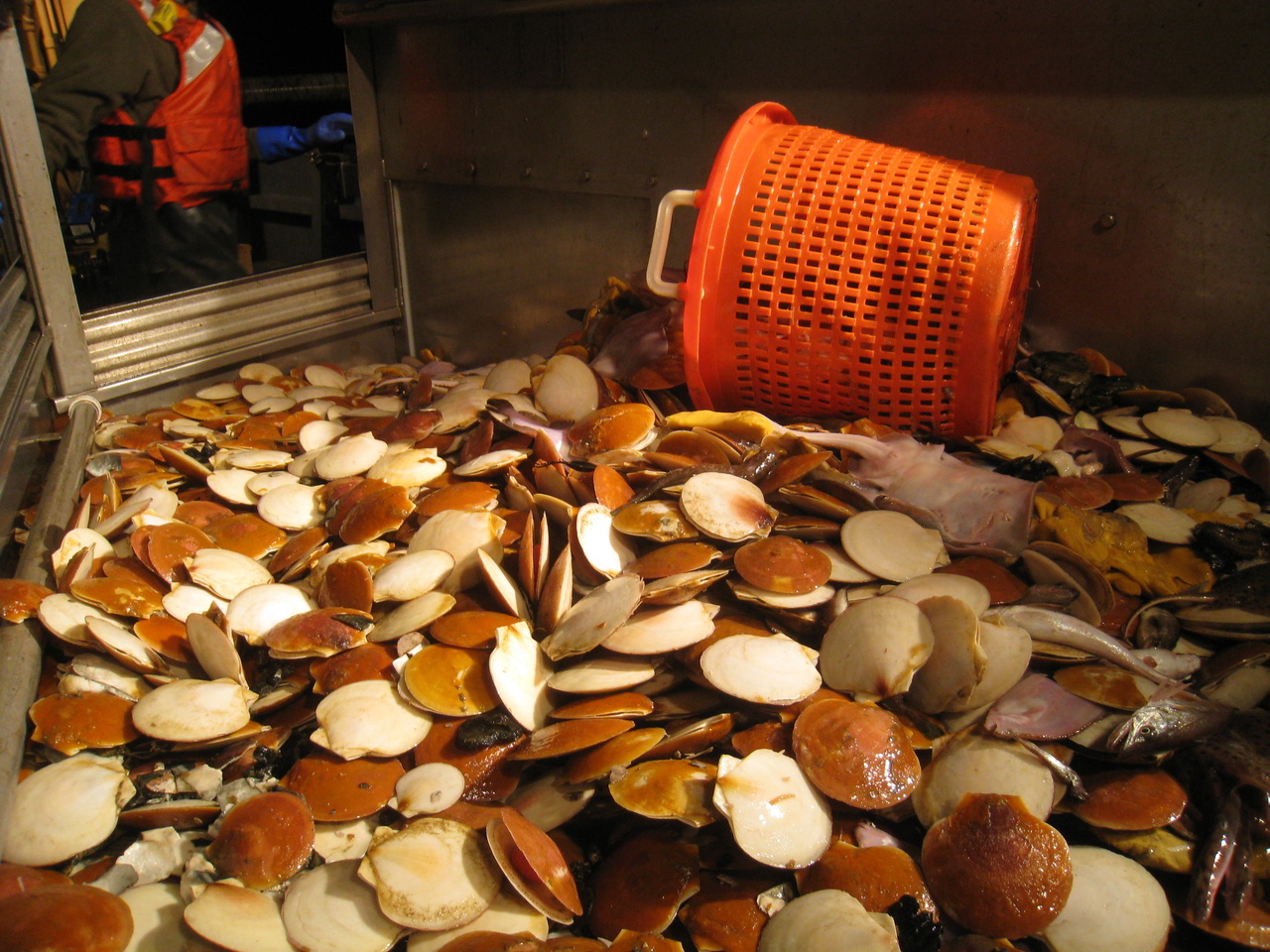Back in late December, before the covid-19 pandemic struck, the New England Fishery Management Council presented regulations for the 2020 fishing year. At the time, around 50 million pounds of U.S. landings and an estimated ex-vessel value of around $487 million was projected for 2020.
It is yet to be determined how things will play out for Atlantic sea scallops, but so far anecdotal reports indicate scallop prices had been down 30 percent or more around New Bedford, Mass. In April, the council asked federal regulators to make changes because of the impact the coronavirus has had on the fishery.
The 2019 fishing year went as expected, says Travis Ford of NMFS. Estimates say average prices were $9.20 per pound.
“Preliminary landings data suggest the fleet landed 58.15 million pounds of scallops in 2019,” according to Ford. “The biggest surprise was the conditions in the Nantucket Lightship-West Access Area. Based on 2019 surveys there was around 50 million-pound decline in total biomass estimate from 2018-19. This made it difficult for vessels to finish their trips in the area later in the fishing year.” Regulators are investigating what is behind the decline.
Rusty Parmenter, a Maine scallop fisherman who works in both federal and Maine state waters, says things have changed as restaurant markets shuttered in response to covid-19. The bulk of larger scallops are usually sold to restaurants and receive a premium price at the dock. Now, many are being frozen instead and sold to supermarkets.
In mid-March, Parmenter said scallops were $10 per pound at auction in Massachusetts. Parmenter moved to Gloucester, Mass., for the short Northern Gulf of Maine scallop season, which allows him 200 pounds of scallops per day, until the total allowable catch of 210,000 pounds allocated for the season is reached. However, increasingly, Parmenter’s model has shifted to direct sales.
“I’ve been peddling a lot of scallops in Maine,” said Parmenter. He catches and unloads in Gloucester, then drives the scallops back to Portland, Maine, combining his catch with a few other Maine fishermen. People pick up after ordering. So far, prices direct to consumers have been $15-17 per pound for U-10s. If there is an upside to anything, adds Parmenter, it is fuel costs, which have been about $1.40/gallon.
Maine’s scallop industry is dominated by dayboats and divers. Preliminary data for 2019 shows 415,818 meat pounds worth $4.36 million and averaging $10.48 per pound. “From what I've heard, this season did not see the volume of past seasons, but that’s to be expected with a rotational management system,” says Togue Brawn, owner of Downeast Dayboat, which sells Maine dayboat scallops and other premium seafood products. “In fact, with harvests going down, I hope Maine’s Department of Marine Resources puts even more stringent measures in place to cultivate what scallops we have now back into a larger fishery.”
Brawn’s model of shipping within hours of harvesting is keeping her going. “I am keeping my fingers crossed that it continues. We ship to home cooks all across the country. I’m shipping boxes even more because so many folks are looking for fresh, delicious and safe food. “When the Northern Gulf of Maine area opened,” adds Brawn, “I knew with the restaurants closed, there would be nowhere for the guys to sell their super premium catch.” Brawn is working with other Maine seafood and niche food companies to reach more retail customers.
The overall effects of covid-19 on the Atlantic sea scallop industry are still unfolding, says Jeff Bolton, CEO of Atlantic Capes Fisheries, a large processor and distributor based in Cape May, N.J.
“From a harvesting perspective, the fishing is robust. We’ve seen much better sizes out of key areas, which means fishing will be good. But right now, it’s day by day. We haven’t had cooperative weather, so we haven’t had a big effort from the fleet yet. But the boats that have gone out have seen good quality and robust harvest.” Bolton says prices have now stabilized, after a tough start: “Generally, prices are $8 and $8.50 per pound from the auction, which is more favorable than it was.”
Bolton says their frozen product side is busy, while the fresh wholesale side is nonexistent right now.
“Our business has been dramatically changed overnight. But I expect a consistent year, and we all will have to adapt to sales and how we will do it. Businesses that have been fresh-focused will face big challenges.”
Industry-based surveys are also delayed because of covid-19. “High-resolution surveys are vital to the success of the scallop fishery, and covid-19 will, at minimum, delay these surveys in the spring and summer of 2020, and, at worst, could cause the surveys to be canceled altogether,” says Ford of NMFS. “This could delay fishing year 2021 specifications or mean specifications are based on 2019 survey data.”







